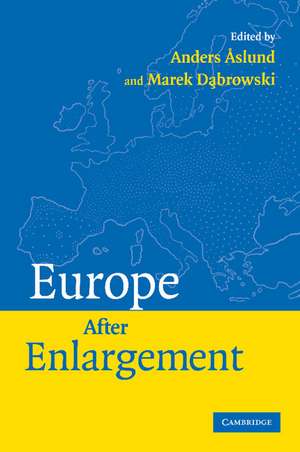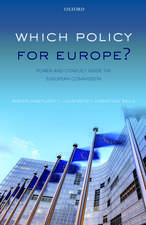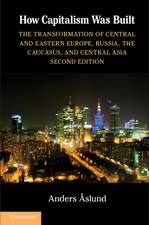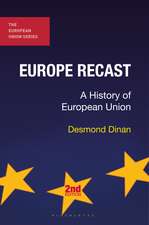Europe after Enlargement
Editat de Anders Aslund, Marek Dabrowskien Limba Engleză Paperback – 3 oct 2012
| Toate formatele și edițiile | Preț | Express |
|---|---|---|
| Paperback (1) | 222.45 lei 22-36 zile | +14.46 lei 6-12 zile |
| Cambridge University Press – 3 oct 2012 | 222.45 lei 22-36 zile | +14.46 lei 6-12 zile |
| Hardback (1) | 525.03 lei 43-57 zile | |
| Cambridge University Press – 18 mar 2007 | 525.03 lei 43-57 zile |
Preț: 222.45 lei
Nou
Puncte Express: 334
Preț estimativ în valută:
42.57€ • 44.55$ • 35.43£
42.57€ • 44.55$ • 35.43£
Carte disponibilă
Livrare economică 10-24 martie
Livrare express 22-28 februarie pentru 24.45 lei
Preluare comenzi: 021 569.72.76
Specificații
ISBN-13: 9781107410510
ISBN-10: 1107410517
Pagini: 254
Dimensiuni: 152 x 229 x 15 mm
Greutate: 0.38 kg
Editura: Cambridge University Press
Colecția Cambridge University Press
Locul publicării:New York, United States
ISBN-10: 1107410517
Pagini: 254
Dimensiuni: 152 x 229 x 15 mm
Greutate: 0.38 kg
Editura: Cambridge University Press
Colecția Cambridge University Press
Locul publicării:New York, United States
Cuprins
List of charts, tables, and boxes; Contributors; Acknowledgments; Introduction Anders Åslund and Marek Dabrowski; 1. Has Europe lost its heart? Charles Wyplosz; 2. Economic implications of the social provisions of the stalled EU constitution Georges de Menil; 3. Fiscal policy and fiscal rules in the European Union Vito Tanzi; 4. Design and implementation of the stability and growth pact: the perspective of new Member States Fabrizio Coricelli; 5. Perspective on the Lisbon strategy: how to increase European competitiveness Daniel Gros; 6. Is Europe reforming? Evidence from cross-country structural indicators Patrick Lenain; 7. Recovery growth as a stage of post-socialist transition Yegor T. Gaidar; 8. Comparative oligarchy: Russia, Ukraine and the United States Anders Åslund; 9. The economic rationale of the 'European neighborhood policy' Susanne Milcher, Ben Slay and Mark Collins; 10. Economic integration of Eurasia: opportunities and challenges of global significance Johannes F. Linn and David Tiomkin.
Recenzii
A pantheon of economic thinkers grapples with the problems facing Europe. No longer about East vs. West or even rich vs. aspiring, the issue now is whether all of Europe can stay (relatively) rich while it ages. As the authors make clear, for really dealing with this complex problem and all its facets, it's much later than you think. -- Simon Johnson, Sloan School of Management, MIT
Enlargement has irreversibly transformed the European Union and this must lead to a rethinking of its principles and policies. Åslund and Dąbrowski offer analyses, ideas and proposals that cover a wide range of issues. This is a most welcome contribution to the debate on the course the new Europe should take in the years to come -- Jean Pisani-Ferry, Director of Bruegel, Brussels
This book discusses - in a profound and transparent way - many important topics, e.g. EU constitution, aging, fiscal rules, economic growth in the European countries. It usefully covers EU-IS, New Members as well as Eurasia. -- Leszek Balcerowicz, President, National Bank of Poland
Enlargement has irreversibly transformed the European Union and this must lead to a rethinking of its principles and policies. Åslund and Dąbrowski offer analyses, ideas and proposals that cover a wide range of issues. This is a most welcome contribution to the debate on the course the new Europe should take in the years to come -- Jean Pisani-Ferry, Director of Bruegel, Brussels
This book discusses - in a profound and transparent way - many important topics, e.g. EU constitution, aging, fiscal rules, economic growth in the European countries. It usefully covers EU-IS, New Members as well as Eurasia. -- Leszek Balcerowicz, President, National Bank of Poland
Descriere
In this 2007 book, leading economists assess the five primary challenges facing the 25-member European Union.











